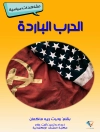While filmic representations of ‘enemies’ are legion, film studies have so far neglected the way in which filmic mediations of enemy images have contributed to shaping cultural memories.
The present volume investigates the (de)(re)constructions of enemy images in international film since the 1970s. The three parts deal with (re)configurations of the enemy in contemporary global cinemas, analysing films on the two world wars, on regional military conflicts, ethnic, racial and gender conflicts, socio-political conflicts and forms of terrorism. The essays concentrate on film aesthetics and contemporary (geo)politics, on filmic renderings of identity crises caused by troubled national pasts, and on the way films explore the collective psychological mechanisms at play in the construction, perpetuation or problematizing of enemy images.
The volume aims to show how in spite of the diversity of national cinemas, moving images are constitutive of national collectivities by rendering conflicts involving an external or internal enemy as the defining points in national or communal histories. It also points out how the dynamics of internalism and exteriority (of ‘we’ and ‘they’) has proved vital in this process.
关于作者
Martin Löschnigg, University of Graz, Graz, Austria; Marzena Sokołowska-Paryż, University of Warsaw, Warsaw, Poland.












